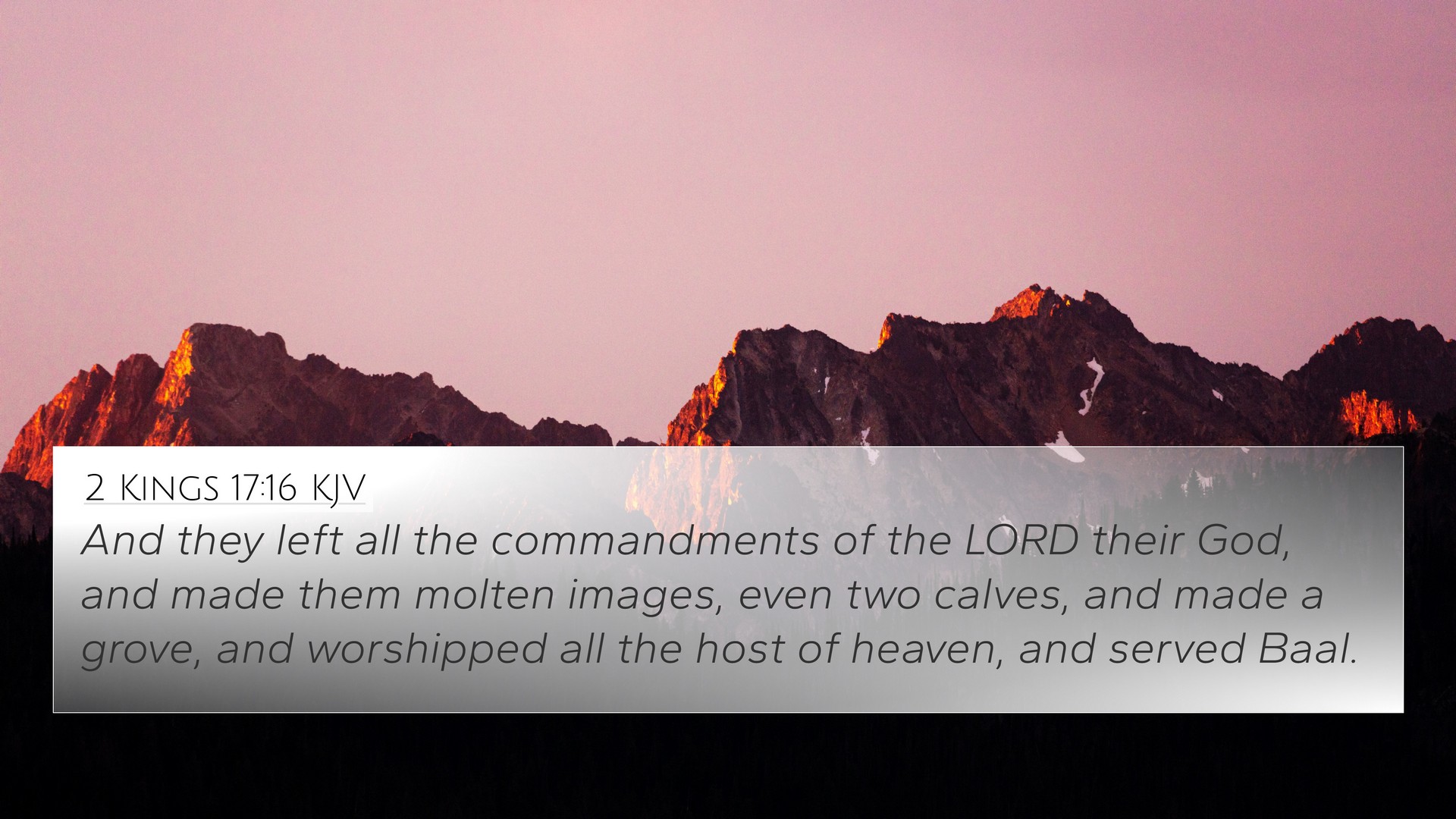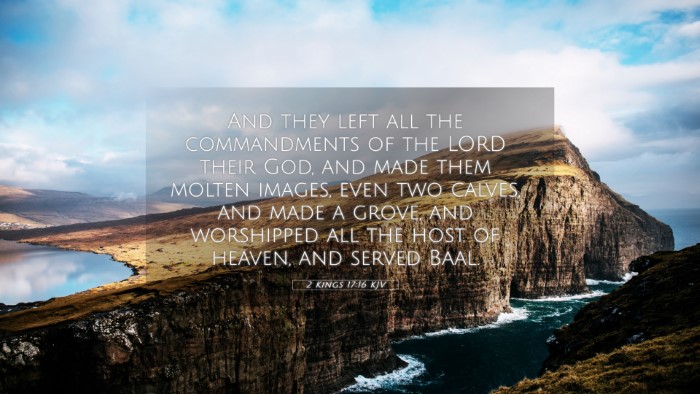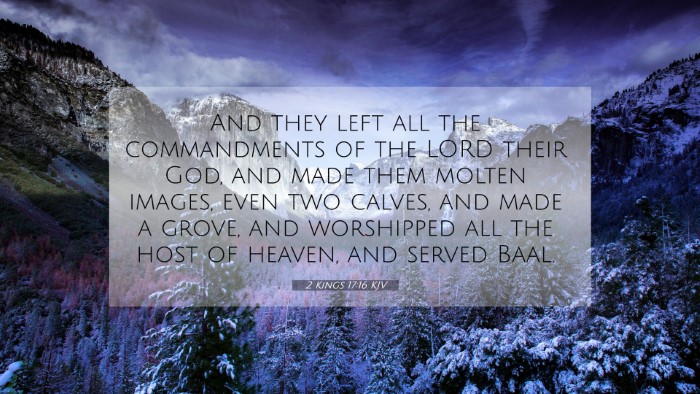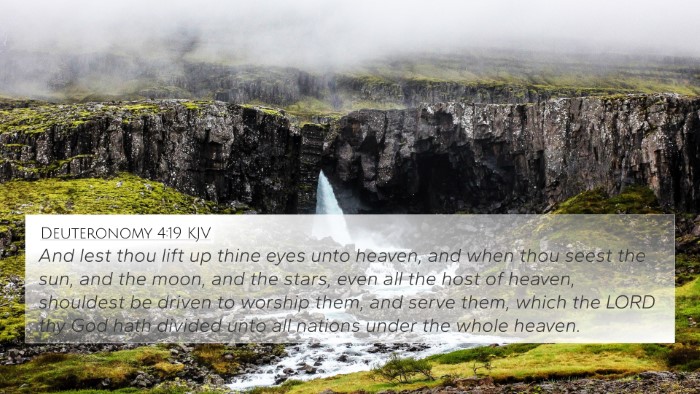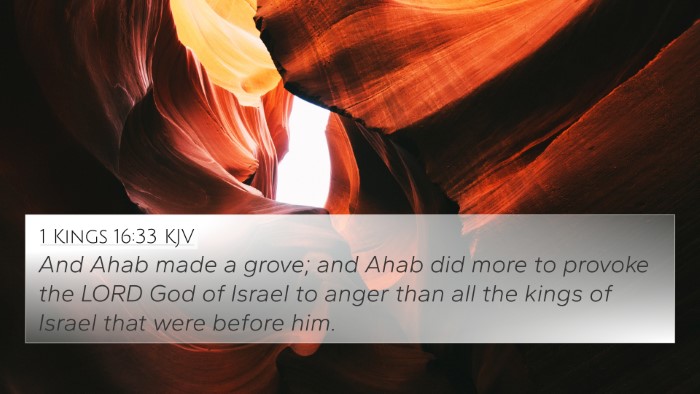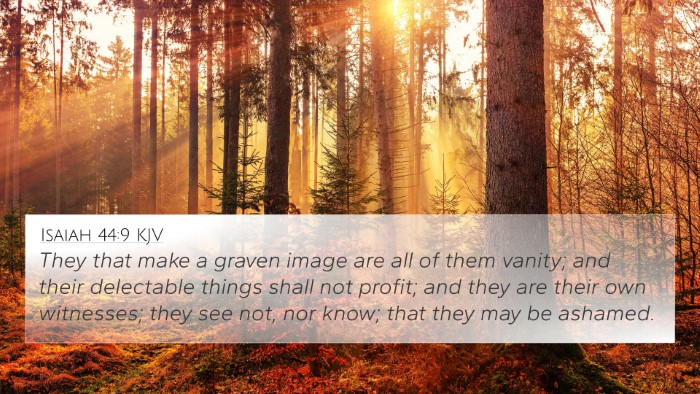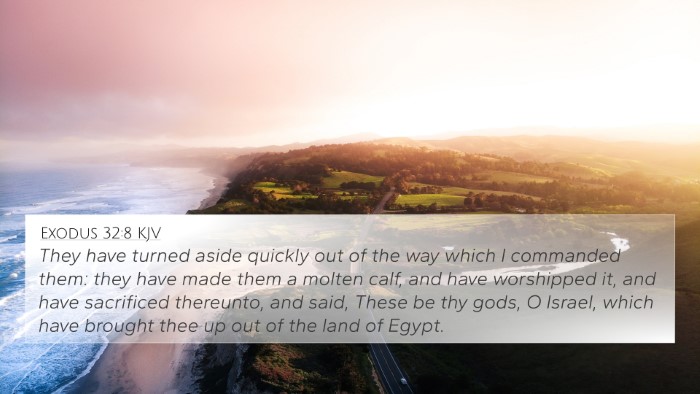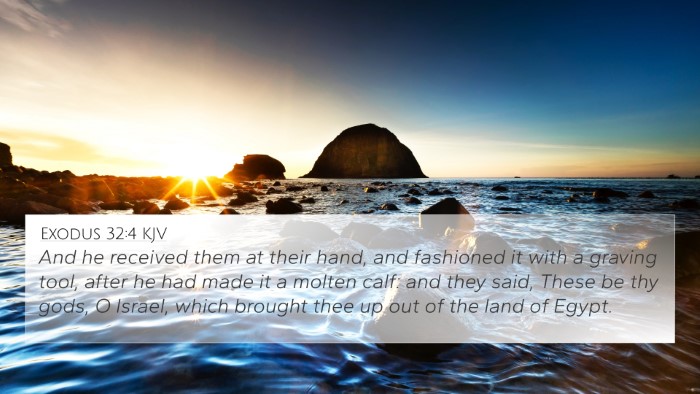Meaning and Insights of 2 Kings 17:16
2 Kings 17:16 states, "And they left all the commandments of the LORD their God, and made them molten images, even two calves, and made a grove, and worshipped all the host of heaven, and served Baal." This verse encapsulates a pivotal moment in Israel's history, revealing the consequences of turning away from God towards idolatry. The context of this scripture explores themes of covenant disobedience and the resulting divine judgment.
Summary of Key Themes
-
Disobedience to God:
The Israelites abandon the commandments given to them, which signifies a break in their covenant relationship with God. This reflects a deeper spiritual crisis within the nation.
-
Idolatry:
The crafting of golden calves and the establishment of groves for worship indicate a turn towards pagan practices. This reflects an attraction to neighboring cultures and religions that contradicted their faith.
-
Divine Judgement:
This act of turning away is met with dire consequences as explained through the passages leading to the eventual fall of the Northern Kingdom of Israel.
Commentary Insights
Matthew Henry's Commentary:
Matthew Henry emphasizes the severity of Israel's sin in forsaking God's commandments, underscoring that their infidelity was not merely a casual lapse but a deliberate inclination towards idolatry. He discusses how the two calves, reminiscent of the golden calf made in the Exodus, reflect a continuous cycle of rebellion against God.
Albert Barnes' Commentary:
Albert Barnes remarks that the Israelites’ rejection of God's law in favor of idol worship represents a significant departure from their foundational beliefs. Barnes points out that the worship of heavenly bodies, alongside Baal, indicates their attraction to foreign deities and a blatant disregard for their unique identity as God's chosen people.
Adam Clarke's Commentary:
Adam Clarke notes the historical context of this rebellion, suggesting that the formation of the calves was a tactical effort to consolidate power within the kingdom and prevent pilgrimage to Jerusalem. His analysis draws attention to the political motivations intertwined with religiously charged actions during this tumultuous period in Israel's history.
Cross-References related to 2 Kings 17:16
- Exodus 32:1-6: The making of the golden calf during Moses' absence.
- Deuteronomy 4:23-24: A warning against idolatry that God gives to the Israelites.
- 1 Kings 12:28-30: Jeroboam’s establishment of golden calves to prevent pilgrimage to Jerusalem.
- Isaiah 1:29: A condemnation of those that cause Israel to stray into idolatry.
- Hosea 4:12: A reflection on idolatry influencing the people of Israel.
- 2 Chronicles 33:6: The realm of Manasseh, where child sacrifices and idol worship were prevalent.
- Jeremiah 2:13: God's lament over Israel exchanging Him for broken cisterns (idols).
Understanding the Connections
The verse in 2 Kings 17:16 serves as a remarkable pivot point that not only summarizes a national tragedy but also connects with multiple scriptures throughout the Bible, showcasing the theme of forsaking God for unworthy idols. The connections drawn between these scriptures provide significant insights into the narrative of God's relationship with His people.
Inter-Biblical Dialogue
There exists a profound dialogue between the Old and New Testaments as idolatry continues to be a relevant theme. In the New Testament, the echoes of these acts are seen as Jesus rebukes the Pharisees for their formalism contrasted with true worship, affirming the ongoing importance of fidelity to God's commandments.
Thematic Bible Verse Connections
Understanding 2 Kings 17:16 within the larger biblical narrative reveals essential truths about the nature of sin, repentance, and divine judgment. The imagery of idolatry found in this verse recurs throughout scripture, demonstrating the continued struggle between faithfulness to God and the allure of worldly things.
Tools for Bible Cross-Referencing
For a deeper understanding of cross-references, utilizing a Bible concordance or a cross-reference guide will enhance study methods significantly. These tools allow for identifying connections between verses, enhancing thematic studies, and preparing for sermons or discussions.
Conclusion
In summary, 2 Kings 17:16 serves as a cautionary tale of Israel's spiritual decline and the lasting impact of disregarding God's commandments. The interplay and connections between various scriptures provide a rich framework for understanding God's unchanging nature in amidst human fallibility.
